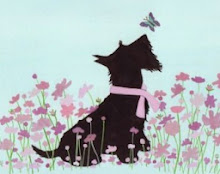
I was talking with Chris and she said, "I'm trying to live my life without any expectations. That way I'm never disappointed." Makes sense. Who needs to be disappointed? I hate it. You, too?
Though the thought made absolutely good sense when she said it, it rolled around in my head long after we hung up the phone. "That way I'm never disappointed." I kept hearing her tone when she said it, not the words. The tone of voice said way more.
Trying to describe a tone of voice is harder than replicating the words for you to read. I'm going to try because, as so often happens when I speak with her, Chris becomes the torch that Spirit uses to light up dark corners. So, stick with me while I try...
I know that I have said exactly the same. You've probably thought it or even said, too. It's common to attempt to avoid disappointment. Often, after repeatedly being let down, the thread of awareness comes when we think, "If I don't expect a thing from anybody, at least I know what I'll get. At least, no one can let me down..." The word we leave unsaid is, "AGAIN!"
When Chris said it, I got an image of a sweet little girl playing by herself. Doing that talk out-loud thing kids do when they're engaged in singular activities. In my mind, the little girl was playing alone, not by choice, but because no one else would play with her. The child was feeling, "Fine. I didn't want to play with them any way. I can have fun all on my own. So there!"
It's a show of defiance rather than living the sadness of being wounded, or hurt, or let down. It's also the bravado that helps us move on when we've been disappointed. It's not exactly lying to ourselves, more than it's a coping mechanism that helps us move on instead of staying stuck feeling bad.
It's also not genuine. It's not really how we feel. It's a mask for our disappointment. It keeps us from feeling vulnerable. But, it's a lot of effort for nothing because people can see right through it; even you don't believe it when you say it.
Disappointment comes from needs and expectations unmet. Is there a way to live life without expectations and, hence, without disappointment? Yes and no. Disappointment must be experienced so we know what we need and want, and how to build a life around unpredictability. It means determining what sort of people we want to be surrounded by vs. those who simply make life too hard.
We have to experience disappointment, but the problem is that many people live disappointment. And, that's toxic.
We have expectations. They're often goals when managed correctly. But, expectations can only be those that we hold for ourselves, not of others. And, we can't be rigid with them since goals only work when they flow with us. We can only manage our own behavior, never manage the behavior of others. We can manage our response to disappointment, but never avoid the possibility of it. And, really we shouldn't want to...
When you drill down through the issue of expectations and disappointment, you come to what the Buddhist describe as the suffering we feel from our ego insisting on controlling everything. For insisting on certainty. The suffering that is caused because we demand to know what to expect all the time instead of living life moment to moment. Accepting it as it comes.
We only become disappointed because we expected someone to give us what we hoped. Or, do what we needed them to do. Or if they don't measure up to our notions of them. And they failed us.
But does that mean that you defiantly decide to do everything for yourself? Never ask for another thing? Never tell someone you need their help? No. That's the little child who says, "I didn't want to play with them anyway..."
Instead, we learn to be brave and risk disappointment by remaining open to possibility. And, learn where we stop and start; where we must brush up against others to thrive. We learn when we should rely on them and when we should manage things on our own. We learn to be honest and say what we need. When necessary, we clearly articulate our expectations; we hold them to a minimum. And, as a Peaceful Warrior, we view life as it comes instead of being disappointed when it doesn't go exactly as we want. We learn to embrace, or at least tolerate, uncertainty.
We learn to develop compassion for our own weaknesses and flaws as we hope others will do when we fail to deliver or let them down. Because, we certainly will; it's only Human to fall short of the mark at times.
We hold hope instead of expectation. We learn to live with more heart and less ego. We love people, accepting them just as they are, so when they are at their least, they get a glimmer of their potential when they can't see it for themselves. We are honest with them and that starts by being honest with ourselves. We begin to discern the difference between the absolutes and the negotiables.
You'll be able to say, "I'm trying to live my life without expectations. That way I'm never disappointed because I know that life is good and I'm always hopeful about what's to come." It's better that way.
Namaste' Till Next Time,
Holly
Though the thought made absolutely good sense when she said it, it rolled around in my head long after we hung up the phone. "That way I'm never disappointed." I kept hearing her tone when she said it, not the words. The tone of voice said way more.
Trying to describe a tone of voice is harder than replicating the words for you to read. I'm going to try because, as so often happens when I speak with her, Chris becomes the torch that Spirit uses to light up dark corners. So, stick with me while I try...
I know that I have said exactly the same. You've probably thought it or even said, too. It's common to attempt to avoid disappointment. Often, after repeatedly being let down, the thread of awareness comes when we think, "If I don't expect a thing from anybody, at least I know what I'll get. At least, no one can let me down..." The word we leave unsaid is, "AGAIN!"
When Chris said it, I got an image of a sweet little girl playing by herself. Doing that talk out-loud thing kids do when they're engaged in singular activities. In my mind, the little girl was playing alone, not by choice, but because no one else would play with her. The child was feeling, "Fine. I didn't want to play with them any way. I can have fun all on my own. So there!"
It's a show of defiance rather than living the sadness of being wounded, or hurt, or let down. It's also the bravado that helps us move on when we've been disappointed. It's not exactly lying to ourselves, more than it's a coping mechanism that helps us move on instead of staying stuck feeling bad.
It's also not genuine. It's not really how we feel. It's a mask for our disappointment. It keeps us from feeling vulnerable. But, it's a lot of effort for nothing because people can see right through it; even you don't believe it when you say it.
Disappointment comes from needs and expectations unmet. Is there a way to live life without expectations and, hence, without disappointment? Yes and no. Disappointment must be experienced so we know what we need and want, and how to build a life around unpredictability. It means determining what sort of people we want to be surrounded by vs. those who simply make life too hard.
We have to experience disappointment, but the problem is that many people live disappointment. And, that's toxic.
We have expectations. They're often goals when managed correctly. But, expectations can only be those that we hold for ourselves, not of others. And, we can't be rigid with them since goals only work when they flow with us. We can only manage our own behavior, never manage the behavior of others. We can manage our response to disappointment, but never avoid the possibility of it. And, really we shouldn't want to...
When you drill down through the issue of expectations and disappointment, you come to what the Buddhist describe as the suffering we feel from our ego insisting on controlling everything. For insisting on certainty. The suffering that is caused because we demand to know what to expect all the time instead of living life moment to moment. Accepting it as it comes.
We only become disappointed because we expected someone to give us what we hoped. Or, do what we needed them to do. Or if they don't measure up to our notions of them. And they failed us.
But does that mean that you defiantly decide to do everything for yourself? Never ask for another thing? Never tell someone you need their help? No. That's the little child who says, "I didn't want to play with them anyway..."
Instead, we learn to be brave and risk disappointment by remaining open to possibility. And, learn where we stop and start; where we must brush up against others to thrive. We learn when we should rely on them and when we should manage things on our own. We learn to be honest and say what we need. When necessary, we clearly articulate our expectations; we hold them to a minimum. And, as a Peaceful Warrior, we view life as it comes instead of being disappointed when it doesn't go exactly as we want. We learn to embrace, or at least tolerate, uncertainty.
We learn to develop compassion for our own weaknesses and flaws as we hope others will do when we fail to deliver or let them down. Because, we certainly will; it's only Human to fall short of the mark at times.
We hold hope instead of expectation. We learn to live with more heart and less ego. We love people, accepting them just as they are, so when they are at their least, they get a glimmer of their potential when they can't see it for themselves. We are honest with them and that starts by being honest with ourselves. We begin to discern the difference between the absolutes and the negotiables.
You'll be able to say, "I'm trying to live my life without expectations. That way I'm never disappointed because I know that life is good and I'm always hopeful about what's to come." It's better that way.
Namaste' Till Next Time,
Holly




2 comments:
Your quote at the end is exactly how I would have written my own ... doesn't mean I don't have a moment or two of loosing sight of that, but it is usually the driving force of my daily attitude. Loved the piece Holly and thanks for your insights.
Have patience with all things but first of all with yourself.
Post a Comment